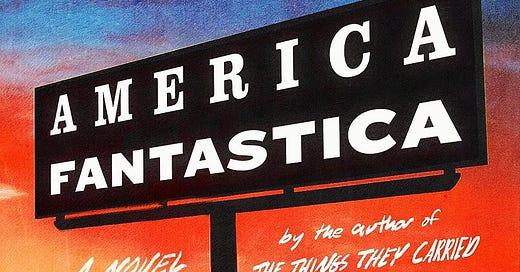Thirty years ago, if you ran into Tim O’Brien at one of the many readings he gave in bookstores, on college campuses, or at literary conferences, he might tell you that he’d recently had lunch with his old friend Kiowa. And you might think, “Wait a minute. Wasn’t Kiowa a fictional character in his book The Things They Carried? And didn’t Kiowa die in on…
Keep reading with a 7-day free trial
Subscribe to Book Post to keep reading this post and get 7 days of free access to the full post archives.



